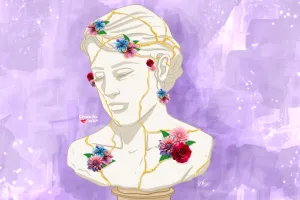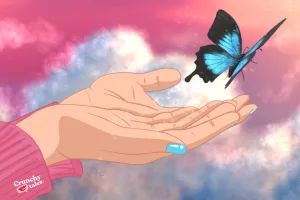How To Stop Comparing Yourself To Your Younger Body
Comparing ourselves to others is very common and almost automatic. There will be always someone smarter, richer and younger. As a matter of fact, according to social comparison theory, the drive to compare ourselves to others is part of the basic desire to understand ourselves and our place in the social world. It states that individuals determine their social and personal ‘worth’ based on how they stack up against others.
However, in today’s day and age, this habit has become harder and harder to escape.
We are constantly bombarded with so-called perfect images—sexy, fit, airbrushed or photoshopped bodies, on social media, in magazines, on billboards, on TV, and in movies. Because of this, there becomes a tendency to think something is ‘wrong’ with the way we look. These thoughts and feelings about ourselves, leave us seeking out methods to help make us look ‘better’ (aka-diets & beauty products.)
The problem is that the diet and weight loss market is a $72 Billion dollar industry, and the beauty industry kicks in another $500 Billion. These ones capitalize on social media trends, social comparison theory and the never-ending pursuit of perfectionism of women.
The result? We don’t feel ‘good enough’ regardless of how we look.
The Past Self-Comparison Spiral
As we grow older, what becomes even harder is comparing ourselves to our younger bodies. It’s when the mirror doesn’t reflect the image or the lifestyle we used to have and love. I call this Past Self-Comparison.
It’s the one we make between our current self (at your age now) and an idealized memory of a past self that we have protected, admired, idolized and loved. It has stuck in our brain and been hard-wired in because the memory feels good.
Looking at those photos of our younger selves, for instance, the old habits might kick right into gear. The initial assessment will be negative; we will notice what we have lost. We may not even recognize ourselves at first. There is a belief that if we could just ‘look like that again’ then everything would be different. We would be ok, We would feel good in our bodies, and we would be happy.
This past-self comparison can be paralyzing and will only set you up for negative self-talk, self-criticism and judgment.
Appreciation vs Inner Criticism
The cure for this past self-comparison is curiosity. Noticing and becoming aware of the differences in your lives between then and now.
Think about who you want to be, not who you were. Acknowledge your inner critic and follow it up with a “isn’t it interesting?” statement.
For instance: “Isn’t it interesting that just choosing to appreciate the body you are in, (and have today), will not only help you feel more comfortable in your body but It will also reduce stress, increase joy, and will lead to a life full of more confidence and happiness?”
It is important to remember that you have lived a lot of life since then. Things are different today than they were then. One thing is for sure, I would guess that you hadn’t just lived through a worldwide pandemic.
Just because of that experience, your body will be different. So will your lifestyle and how you live. Since then, you might have experienced births, deaths, illnesses, moves, children born or going off to college, new jobs, pandemics, stress, medications, hormone shifts, trauma and endless other changes and experiences.
Our bodies, minds, memories, learnings, experiences and lives have, and always will change year by year. We have lived in the bodies of babies, toddlers, 4th graders, middle schoolers, teens and more. Our bodies are always evolving.
Stop Comparing Yourself: Let go of who you were and embrace who you are becoming
There are several ways you can find freedom from your past-self comparisons. One is to identify when and why you’re making those comparisons. Here’s a helpful road map for you to stop doing that and rather enjoy your present self.
-
- Be grateful for what your body can do and the body that you have right here and now. Try making a list of 10 things that your body CAN DO today and read it every day.
- Begin to talk to yourself with a more neutral, curious, compassionate and calm tone. One that expresses more self-kindness and respect.
- Grieve the past selves that are holding you hostage. Allow yourself to feel some of the sadness, frustration or even anger that might come from not being able to do the things you used to be able to do. For myself, I used to run, and I loved it. Unfortunately, my body really can’t do that anymore. It doesn’t feel good, and I realize I would just be damaging myself if I do. So, I took the time to journal and grieve my past “runner self”.
- Notice when you begin to compare yourself. It is really hard to compare our “old outside selves” with our “current inside selves”. There are too many variables that need to be taken under consideration, and it just makes for more and more negative self-talk, and self-criticism. Both of those add stress and impact our self-esteem
- Try to remember the good memories you have had, instead of the “good” bodies you used to have. This will shift your perspective enough that you remember the feelings of that time period. You remember fondly the people, places, and experiences you had. These memories bring about warm feelings. Feelings of gratitude, joy and contentment, rather than criticism and judgement. Although this may take practice, it is well worth it. It really helps to release us from an over-glorifying period of time in our lives.
The pure truth of the matter is, that there is no one in the world that is you. No one has your specific genes, has had your experiences, lived with your past, or has lived your life. Period.
So, step into your story and play hard as you. By doing this, you begin the journey of becoming proud of who you are, at this age. You have learned so much and have lessons you have taken with you. It is time you take ownership of it. No one else can do it as great as you, right here, and right now.






